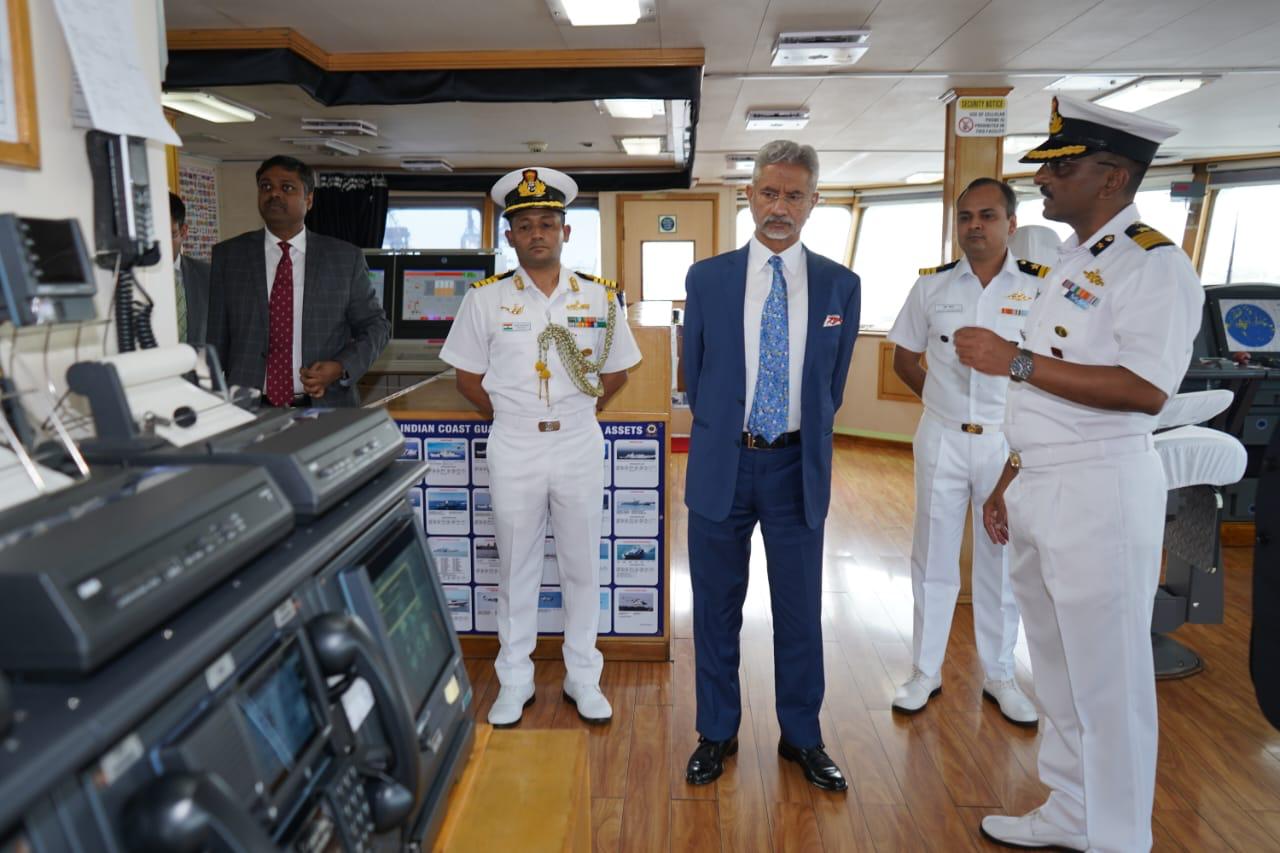Indian vessel arrives in PH as top diplomat calls to protect marine environment
An Indian Coast Guard Ship (ICGS) has arrived in Manila for a port call to bolster partnership with its Philippine counterpart, particularly on efforts to protect the marine environment in the Indo-Pacific.
ICGS Samudra Paheredar docked at the Port of Manila on March 25 for a three-day visit that also coincided with the visit to the Philippines of India's top diplomat, External Affairs Minister Minister Subrahmanyam Jaishankar.
In a gathering hosted by the Indian Embassy in Manila aboard the ship, Jaishankar said Samudra Paheredar's visit symbolized the close collaboration between India and the Philippines on safeguarding the maritime domain.

The visiting Indian ship is a specialized Pollution Control Vessel, which is also equipped with a Chetak Helicopter in Pollution Response configuration and is designed to contain, and recover spilled oil and augment the operation.
"This pollution control vessel to the Philippines is significant because it highlights the shared challenges that we face not just in combating pollution, but even in responding to fishing or ensuring marine environment protection," Jaishankar told the guests, which included United States Ambassador to the Philippines MaryKay Carlson, Japanese Ambassador Endo Kazuya, Malaysian Ambassador Malik Melvin Castelino, and Russian Ambassador Marat Pavlov.
"Like-minded countries of the Indo Pacific should be doing more with each other," Jaishankar added.
Aside from Manila, Samudra Paheredar is also set to visit Ho Chi Minh in Vietnam and Muara in Brunei.
The agenda of its visit includes professional exchanges, cross-deck visits, joint exercises, as well as official and social engagements including visits to capacity-building facilities, according to the Indian Defense Ministry.
"I'm therefore particularly pleased at this port call," Jaishankar said.
"The symbolism that it has made promote greater cooperation between our countries, and promote greater cooperation within the region, and made, instead, a greater sense of maritime interest and responsibility, particularly in the younger generations," he added.